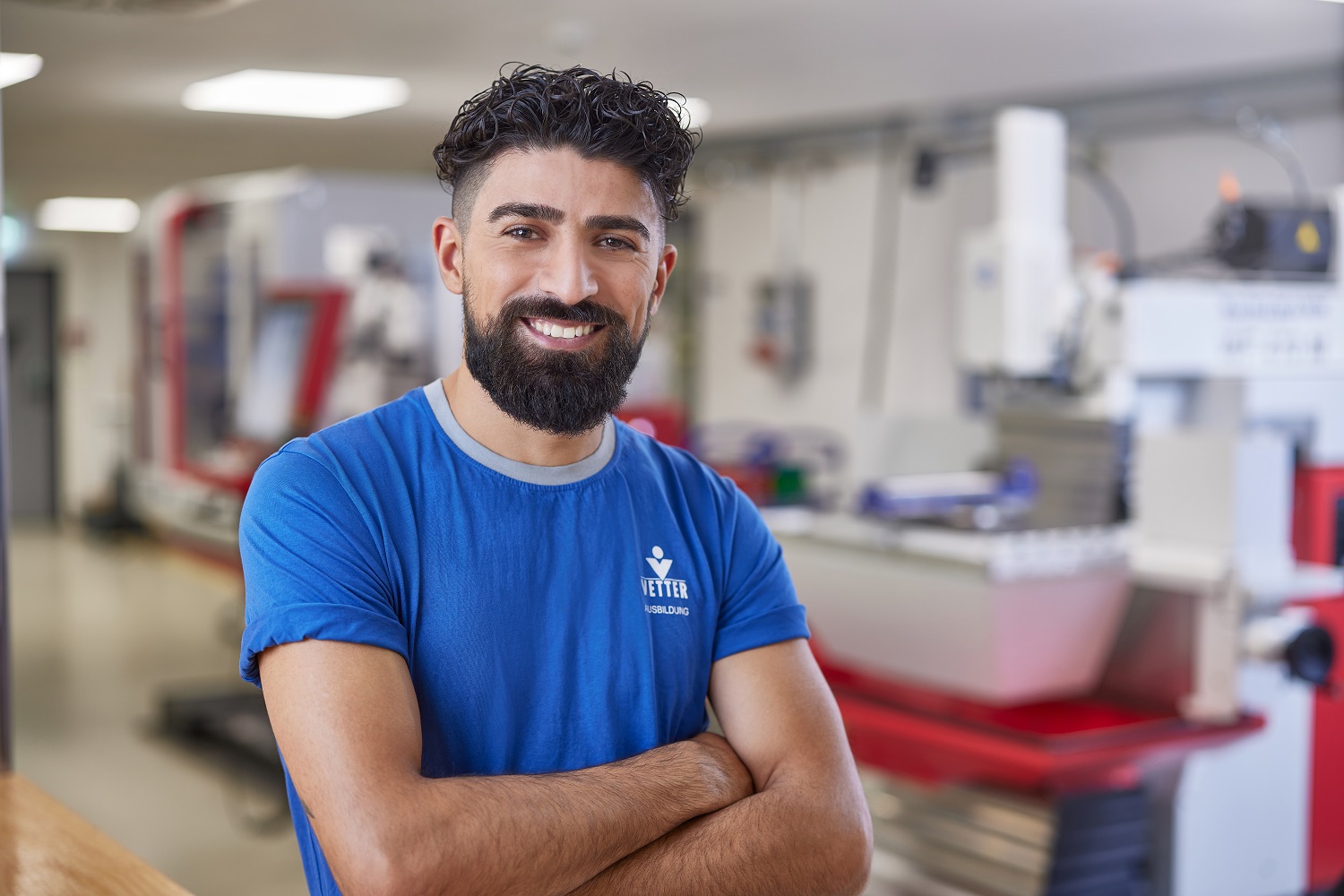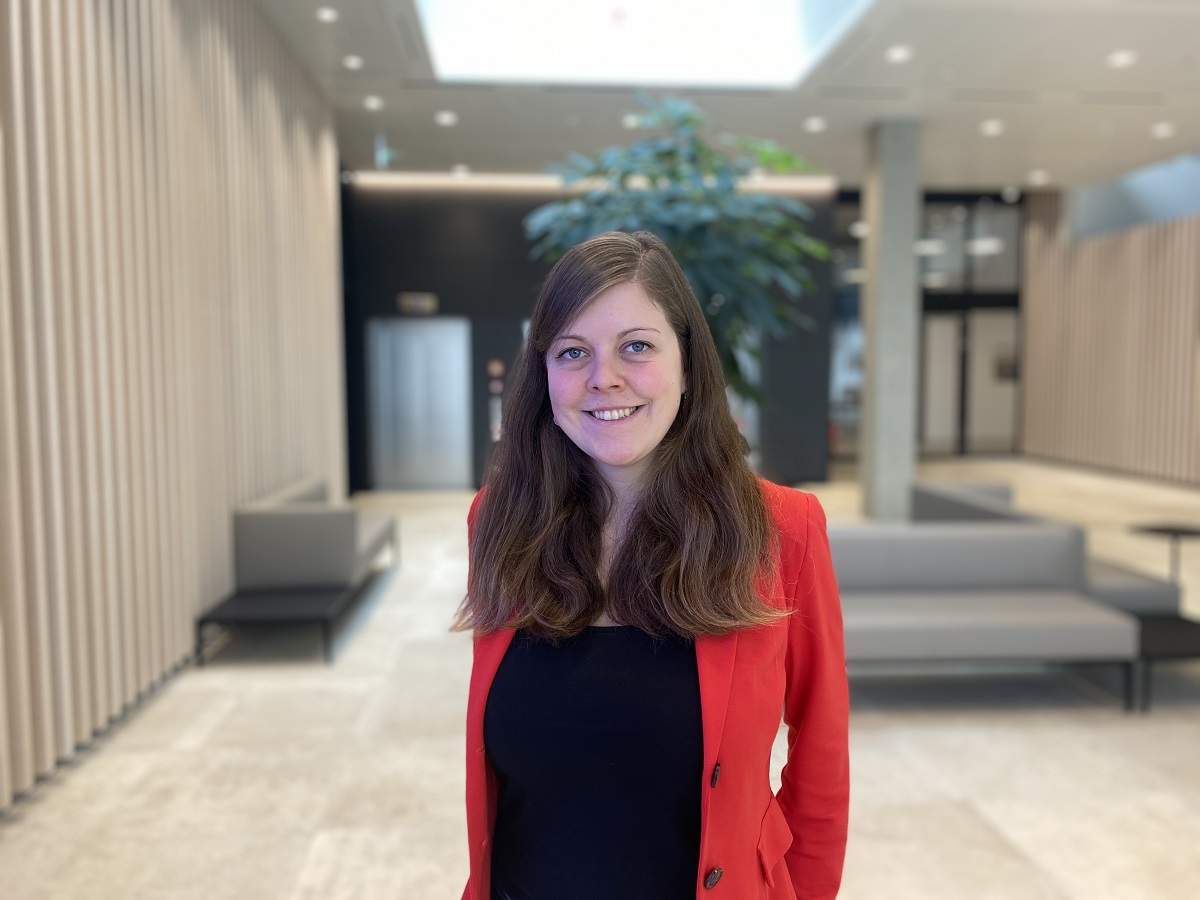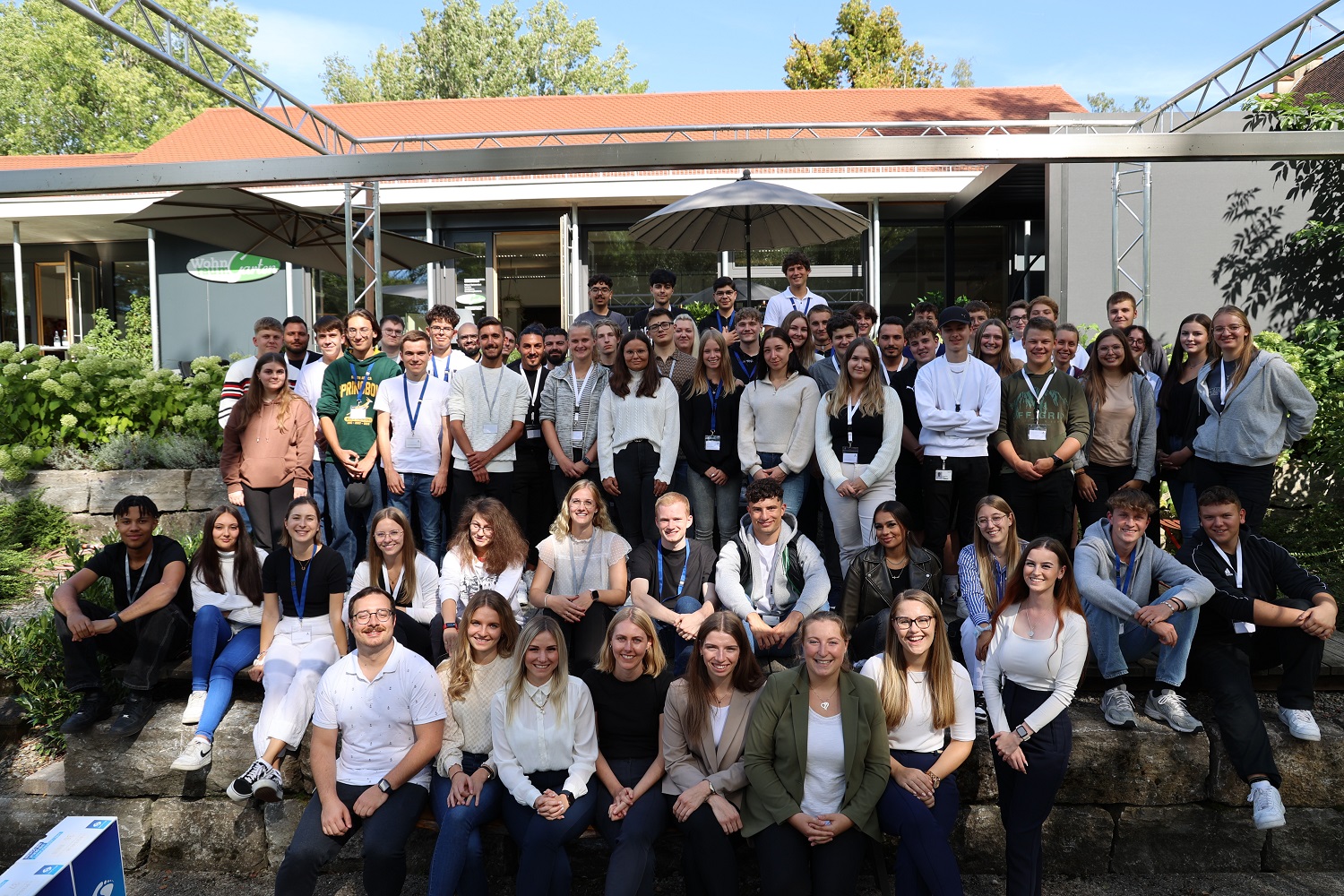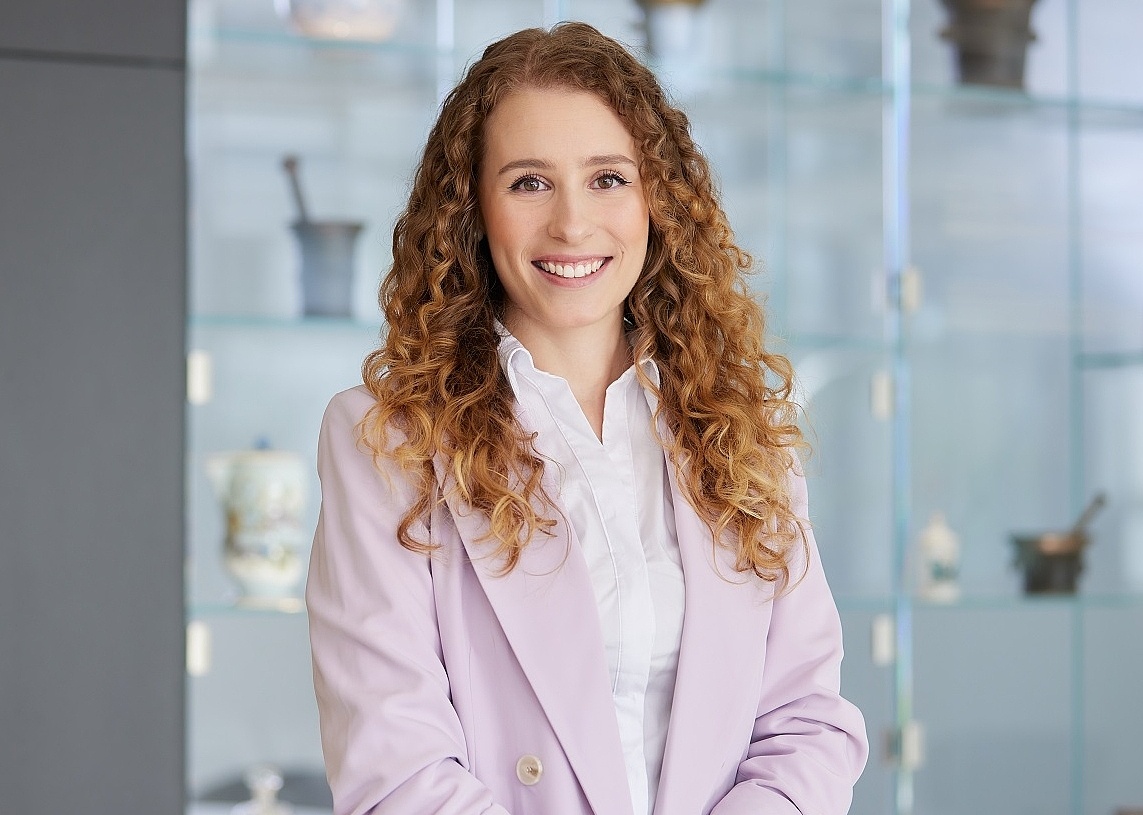
Technology fascinates you, and you want to build your future and career on it? Then build with Vetter on a global player that combines high-tech with great future prospects. Here you can develop freely in a modern environment using innovative technology.
But because there is no one technology, you also have more choice at Vetter: We offer you a dual study program in electrical and information technology, various degrees in mechanical engineering and a course of study in sustainable science and technology. In all, you can combine theoretical knowledge with practical application. Because: High tech is what you make of it!
A dual study in technology is your future, if…
- … you understand and want to decide later on how machines, systems and innovations affect our daily lives and the world
- … you like to be practical and want to see the results of your work
- … your favourite subjects are or were in engineering, mathematics, physics, chemistry, or IT
Our dual study courses in technology
Mechanical Engineering – Production Engineering (B. Eng.)
What you learn from dual studies:
In the dual study of mechanical engineering – production technology, everything revolves around product production: from product and production planning to the planning of production machines and production processes to quality management. During your three-year studies at the DHBW Ravensburg, you will collect a wide range of theoretical and practical know-how
- Manufacturing processes and types of production
- the necessary machines and equipment
- different measuring and testing methods as well as
- logistic processes
In addition, you will also look at the organisational and economic aspects of production processes – and how to optimise them.
What your practical phases at Vetter consist of:
- You are directly involved in the supervision of our production facilities and pharmaceutical production in the cleanroom environment.
- You work independently on various projects at the plants in the field of aseptic filling.
- You support us with new projects within the scope of site expansion – from project planning to filling first batches.
- You take responsibility for lifecycle management of complex manufacturing plants (maintenance, maintenance, modernization and spare parts management).
- You are committed to developing innovative improvements to our processes and facilities.
- In all this you work with different interfaces and learn about aseptic production, quality management, systems and site development, workshops and other departments.
Want to learn more? You can read many details and study contents of the DHBW at Study contents of Mechanical Engineering – Production Technology.
What career opportunities you have after that:
- Master’s trainee programme while working
- Master's degree
Your remuneration
- 1st year of training: €1,201
- 2nd year of training €1,273
- 3rd year of training: €1,365
Your working hours
- Flextime
- 40 hours per week
Your holiday entitlement
- 30 days per year
Requirements
- Good Abitur or good Fachhochschulreife (qualification to enrol at a general university or university of applied sciences)
- Technical interest and understanding of mathematics and physics
Training start and period
- Duration: three years, alternating theoretical and practical phases
- Start: September
Location and university
- Work location at Vetter: Ravensburg
- Cooperation partner: DHBW Ravensburg, Campus Friedrichshafen
Mechanical Engineering – Process Engineering (B. Eng.)
What you learn from the studies:
During the three-year dual study of Mechanical Engineering – Process Engineering at DHBW Mannheim, you connect technology as well as engineering and natural sciences and learn how to convert fabrics in the production of consumer goods. In doing so…
- … select appropriate processes or design machinery and equipment for industrial applications
- …work with the development of novel substances
- …ensure that pharmaceutical products are manufactured as environmentally friendly, inexpensive and efficient as possible.
What makes up your practical phases at Vetter:
- Special tests help you to ensure that critical equipment is functioning properly (e.g., device washing machines, freeze-drying and sterilization systems, laboratory process technology).
- You quickly take on responsibility for servicing and carrying out maintenance and procurement projects as well as for tasks related to plant optimisation.
- You carry out calculations and process engineering interpretations with a focus on fluid and thermodynamics.
- Collaborate with key interfaces such as workshops, mechanical and electrical engineering, work preparation, aseptic production, and other departments.
You want to know a lot more? Then click in and discover more details and information about the study content of Mechanical Engineering – Process Engineering.
What career paths you can take after that:
- Master’s trainee programme while working
- Master's degree
Your remuneration
- 1st year of training: €1,201
- 2nd year of training: €1,273
- 3rd year of training: €1,365
Your working hours
- Flextime
- 40 hours per week
Your holiday entitlement
- 30 days per year
Your requirements
Good Abitur or good Fachhochschulreife (qualification to enrol at a general university or university of applied sciences)
Technical interest and understanding of mathematics, chemistry and physics
Training start and period
- Duration: three years, alternating theoretical and practical phases
- Start: September
Location and university
- Work location at Vetter: Ravensburg
- Cooperation partner: DHBW Mannheim
Electrical Engineering and Information Technology – Automation (B. Eng.)
What you learn from the studies:
The dual course of study in Electrical Engineering and Information Technology – Automation combines electrical, measurement and information technology as well as sensor technology. Accordingly, the three-year study at DHBW Ravensburg is multifaceted and innovative, at which you …
- … plan and develop, automate and optimise electro-technical systems, systems and processes
- …deal with robotics and manufacturing, but also with control and regulation technology or the topic of smart factory
- …in the course of interdisciplinary projects, learn how to program or build systems and machines so that they work and function independently and without the use of people.
- … explore the impact these automation solutions have on quality, workflows, and efficiency.
What you will work on at Vetter during the practical phases:
- You program robotic systems, controls, visualisations, and powertrains for production systems.
- You develop hardware concepts for production equipment.
- You experiment with digital networking in production and drive it forward in an innovative way.
That’s not all: Here you can find more details about then study content of Electrical Engineering – Automation.
What you can do after graduation:
- Master’s trainee programme while working
- Master's degree
Your remuneration
- 1st year of training: €1,201
- 2nd year of training: €1,273
- 3rd year of training: €1,365
Your working hours
- Flextime
- 40 hours per week
Your holiday entitlement
- 30 days per year
Your requirements
- Good Abitur or good Fachhochschulreife (qualification to enrol at a general university or university of applied sciences)
- Technical interest and understanding of informatics, mathematics and physics
Training start and period
- Duration: three years, alternating theoretical and practical phases
- Start: September
Location and university
- Work location at Vetter: Ravensburg
- Cooperation partner: DHBW Ravensburg, Campus Friedrichshafen
Sustainable Science and Technology – Occupational Safety (B. Sc.)
What you learn from the studies:
Taking responsibility – for the environment and those around you. The study Sustainable Science and Technology with a focus on occupational safety is all about sustainable, safe working conditions. Accordingly, the three-year dual study at DHBW Karlsruhe includes scientific/technical engineering training – and you will receive all safety-relevant qualifications and prerequisites that you must meet for a job in occupational safety. You work intensively with the Environment, Health and Safety department and come into contact with various other departments.
In your practical phases at Vetter, you can expect to:
- Support your team in designing and improving working conditions and proactively preventing accidents in the company.
- Advise employees on choosing appropriate personal protective equipment and resources.
- Evaluate explosion protection and evacuation concepts.
- Perform workplace measurements, risk assessments and accident analyses.
- Contribute to harmonious cooperation with all specialist departments in order to find effective and efficient solutions for diverse and varied tasks.
Ready for more? Then you can find more study content from Sustainable Science and Technology – Occupational Safety here.
Your potential career paths after graduation:
- Master’s trainee programme while working
- Master's degree
Your remuneration
- 1st year of training: €1,201
- 2nd year of training: €1,273
- 3rd year of training: €1,365
Your working hours
- Flextime
- 40 hours per week
Your holiday entitlement
- 30 days per year
Your requirements
- Good university qualification graduation or good Fachhochschulreife (qualification to enrol at a general university or university of applied sciences) – ideally with a scientific and/or technical focus
- Technical interest and understanding of mathematics, physics, and chemistry
Training start and period
- Duration: three years, alternating theoretical and practical phases
- Start: September
Location and university
- Work location at Vetter: Ravensburg
- Cooperation partner: DHBW Karlsruhe
Sustainable Science and Technology – Environmental Protection Technology (B. Sc.)
What you learn during the studies:
Taking responsibility, preserving the future: If you care about the environment, you are right in the study of Sustainable Science and Technology with a focus on environmental protection technology. The three-year course of study at the DHBW Karlsruhe includes a scientific and technical engineering training. You also get all the relevant qualifications and prerequisites to be able to work in environmental protection afterwards. You work intensively with the Environment, Health and Safety department and network with various other departments.
These are the main points of your practical phases at Vetter:
- You will learn about the special challenges we face as a pharmaceutical company in environmental matters.
- Gain diverse insights by participating in site visits, audits, work groups, customer conversations, and the like.
- You have flexible training opportunities and can work deeper into specific areas depending on your interest.
- By working closely within the EHS department (= Environment, Health and Safety), you will also learn about health and safety at work.
- You will accompany the transformation of Vetter – characterised by continuous growth and increasing awareness of environmental issues.
If you’d like to know more, here’s more, here’s more study content from Sustainable Science and Technology – Environmental Protection Technology (B. Sc.)
Your possible development paths
- Master’s trainee programme while working
- Master's degree
Your remuneration
- 1st year of training: €1,201
- 2nd year of training: €1,273
- 3rd year of training: €1,365
Your working hours
- Flextime
- 40 hours per week
Your holiday entitlement
- 30 days per year
Your requirements
- Good university qualification graduation or good Fachhochschulreife (qualification to enrol at a general university or university of applied sciences) – ideally with a scientific and/or technical focus
- Technical interest and understanding of mathematics, physics, and chemistry
Training start and period
- Duration: three years, alternating theoretical and practical phases
- Start: September
Location and university
- Work location at Vetter: Ravensburg
- Cooperation partner: DHBW Karlsruhe
Dual study program? We can do it! Not so much boredom.

People at Vetter – Lea Jochheim, Dual Student Environmental Technology
Protecting the environment is both a driving force and a challenge for Vetter as a pharmaceutical producer. In her dual studies, Lea Jochheim learns the opportunities and tasks involved in this topic.
Your advantages of a dual study program at Vetter
Tips for your application

- With your application documents, you show us who you are and what makes you special in a clear and concise way. We are therefore pleased if you think of everything and the documents give a good picture of you.
- The good news is that you don't need a letter of motivation for your application. If you send us one anyway, we can of course find out even more about you. So if you would like to tell us why you would like to work in this profession, we will get to know you better. This can increase your chances...
- ... and maybe we'll invite you to an interview. We look forward to getting to know you and your professional ambitions. If you are well informed about our company and the apprenticeship programme, you will be able to ask us about anything that is on your mind.
- Above all, we want to get to know you and find out more about you as a person. What's the best way to do this? Exactly: completely relaxed and authentic.
Frequently asked questions about our dual study programs
How do I apply for a dual study program at Vetter?
Simple and uncomplicated online via our job portal. There you will find all the positions for school students and can then start your application by clicking on your desired position.
When does a dual study program begin, and until when can I apply?
The dual study program begins annually on September 1. However, our open positions are already available on the job portal in June of the previous year. As long as the position is advertised, you can apply for it. As soon as it is filled, it is no longer displayed in the job portal.
What documents should my application include?
You can upload the following documents to your online applicant profile:
- Curriculum vitae
- Certificates
- optional cover letter - this is not a must, but it allows us to get to know you better, which can of course increase your chances
My desired technical course is not included, what can I do?
The open positions for the next start of the study will be available in our job portal starting in early June. If the desired technical studies are not included, activate the "Job Notification" function in your applicant account. Then we can inform you as soon as an appropriate job is published.
I don't know which course of study is right for me. What now?
We understand. Because it is not so easy to find the right course of study. This is why we provide detailed descriptions of the individual apprenticeship and dual study professions and courses on our school students page. Feel free to read it at your leisure - and If you have any questions, you can contact our trainers. Here you can find your contact persons.

Start your future with purpose - with a dual study program at Vetter
The dual study program in Technology suits your strengths perfectly? We are sure you'll be the best fit for us. It's time we met in person.

Or ask our trainer for dual study programs directly
Carina Spannenkrebs
My area: Dual study program (DHBW)
"For me, training means supporting young people and strengthening them for their careers."
Write an email now














